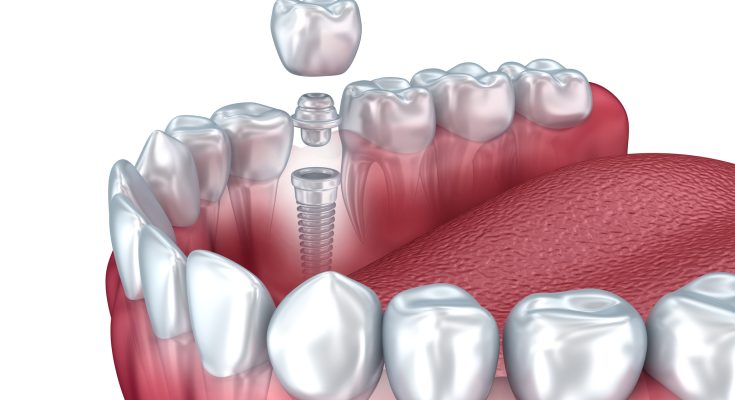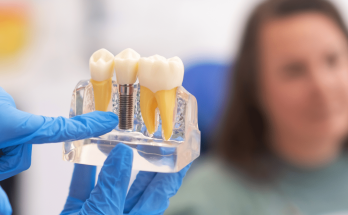Missing teeth are not simply bad for your oral health. They can also affect your general health and self-esteem. The good news? People no longer have to go through life with missing teeth. Fortunately for you, there are several options for replacing your teeth, the most prevalent of which are dentures and dental implants. Consult a dentist in New Bern, NC, to learn more.
Dentures vs. dental implants
Dental implants and dentures provide similar functions: they help you support your facial muscles, chew food, improve your speech, and make you feel more confident; yet, there are some distinctions between the two. Let us take a closer look at dentures and dental implants before moving on to their benefits and drawbacks to assist you in selecting the best answer for you.
- Dental implants
Dental implants are held in place by a metal prosthetic root inserted in the jawbone. The crown, which resembles a tooth, is attached to the top. Because implants are not detachable, they can be compared to permanent tooth replacements. There are also several types of dental implants accessible.
- Dentures
Dentures are removable artificial teeth that may be fitted to your mouth. Dentures can be of several varieties, such as those that replace all teeth in the upper or lower jaw or merely replace a few missing teeth.
Benefits of dentures
- Patients with bone and gum loss can wear dentures (as opposed to implants, which must be attached to bone).
- Implants are more costly than dentures.
- Making dentures is rather short, requiring just four dentist appointments.
- Denture fitting is a non-invasive surgery. Furthermore, drilling into the bone, part of the implant process is unnecessary for dentures.
Drawbacks of dentures
- Dentures can be difficult to adjust to and unpleasant, particularly during the first day or two of wearing them. You may feel increased salivation, chewing problems, and trouble speaking.
- As the structure of your face and gums changes with age, adjustments or replacements may be required.
- Dentures, like natural teeth, will need everyday maintenance. If your dentures are not properly cared for, infection around the mouth and gums might emerge.
Benefits of dental implants
- The implants are long-lasting, lasting 20 years or more.
- Dental implants are highly successful, with a 95% success rate.
- Implants protect the structural integrity of your face and jaw bones.
- Dental implants are as simple to maintain as natural teeth.
- Dental implants can be placed in a single day (but the operation does need follow-up visits).
- Implants, which function similarly to natural teeth, allow the bone to continue to develop.
Drawbacks of dental implants
- Dental implants are unsuitable for everyone since they require healthy bones and gums to be correctly secured to the jaw. (Bone and tissue transplants can be done but will further increase costs).
- Dentures are the less expensive option when comparing the expenses of dental implants and dentures.




